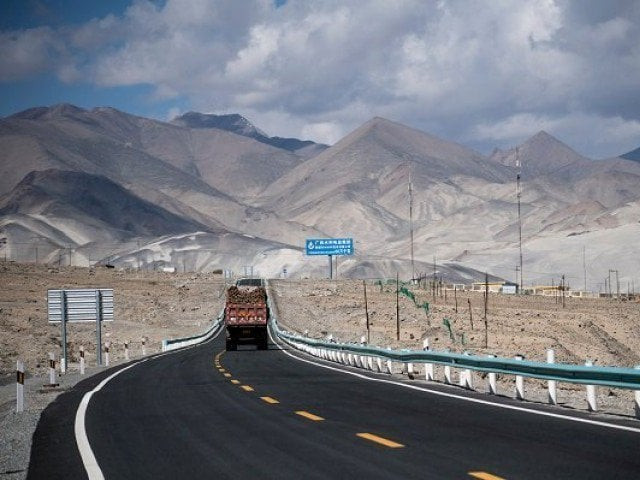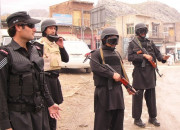CPEC to help fulfil Pakistan’s food security needs: experts
Speakers express concerns over the prevalent state of malnutrition in the country

A Reuters file photo.
This was discussed during a policy dialogue on ‘National Agriculture and Food Security in Pakistan’. The dialogue was held at the Institute of Policy Studies (IPS) in Islamabad on Monday in collaboration with the Pakistan Agriculture Scientists Forum (PAS-Forum).
Presenting an overview of Pakistan’s agriculture sector, Pakistan Agricultural Research Council (PARC) Chairman Dr Azeem Khan emphasised the need for better productivity in various potential agriculture sub-sectors. The aim of this should not only be to address the country’s food security concerns, but also to elevate it to meet standards for international trade.
Dr Azeem lamented that Pakistan used to be a net food exporter until 2013 when it started to become a net food importer.
The second phase of the China-Pakistan Economic Corridor (CPEC) offers a good opportunity to help the agriculture sector recover, but the onus largely lies with the government to set targets and strategies carefully to benefit from upcoming opportunities.
The PARC chairman called for alleviating the agriculture sector through a business-oriented model, which, in his opinion, can only be done through value addition — converting raw materials into standard commercial products and brands.
He highlighted that a combination of different commodities and products being manufactured along the CPEC routes have significant potential.
There is a huge potential for the production and export of fodder, edible oils and palm oil, whereas pulses and oilseeds are some other lucrative areas which can be invested in.
He, however, pointed out that post-harvest losses remain a concern in the country, before adding that the solution lies in careful measures taken in the areas of production, diversification, post-harvest handling, processing, certification, and value addition – all aimed at converting the harvest into high-value products while enabling them to maintain standards for international trade.
Dr Azeem also spoke fervently about the prevalent state of malnutrition in Pakistan, terming it unprecedentedly high while maintaining that making Pakistan nutritionally food secure should be the government’s top-most goal.
University of Agriculture Faisalabad Professor Dr Amanullah Malik spoke about potential and opportunities for Pakistan’s agricultural sector with regards to CPEC and its mega projects. He noted that there several agriculture items where Pakistan has an edge over the rest of the world, especially when it comes to China.
The professor noted that unbeknownst to most, China is the world’s largest import of farm produce, and China alone accounts for around 10 per cent of the world’s total farm produce trade.
China is a net importer of bulk agriculture products and there has been rapid growth in its imports from BRI countries recently, he said.
In this regard, he said that Pakistan can find a voracious client in China for crops such as soybean, barley, corn, wheat and cereals.
Rice is the country’s major export to China but there is potential to export several other agricultural products as well, Dr Amalik said.
In the field of fruit, he said that Pakistan looks to export its cherries, grapes, mangos, guavas and oranges. He pointed out that despite the hostilities and trade disputes between Beijing and China, around 70% of China’s agriculture imports still come from the US, and handful of other countries in South America, South East Asia, the European Union and Australia.
He warned that breaking these long-established and standardized supply routes will be very challenging, but it can be done. But to do that, it was necessary to improve the standards of our product to be able to compete with these countries.
Pakistan has fallen behind in utilising technology for fulfilling its agricultural requirements when compared to other countries, Haripur University Vice-Chancellor Dr Anwarul Hasan Gilani said, noting that there is a pressing need for using modern technological systems and methods to could cope with present-day challenges such as global warming and climate change.
The speaker emphasized the need to focus and invest in building the capacity of locals apart from improving access to international markets.
He called for taking immediate measures, such as making crops nutritive and resilient to climate change, rescuing of more farmland, empowering of small landholders, de-urbanisation, preservation of water, recycling of crop/livestock waste and saving of food through public awareness drives if Pakistan is to answer its rising food security threats.
Published in The Express Tribune, January 28th, 2020.



















COMMENTS
Comments are moderated and generally will be posted if they are on-topic and not abusive.
For more information, please see our Comments FAQ